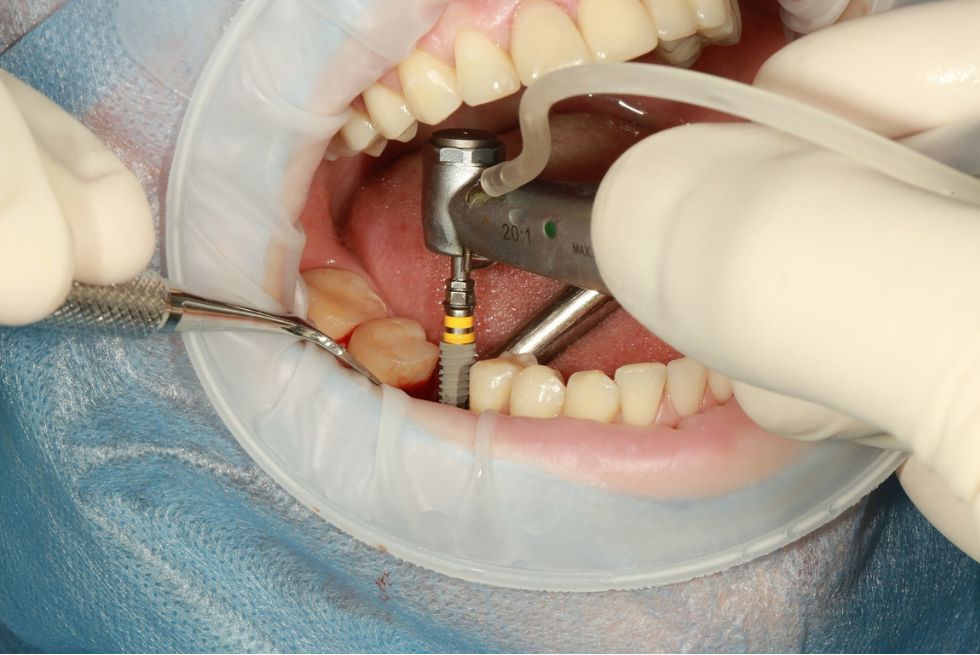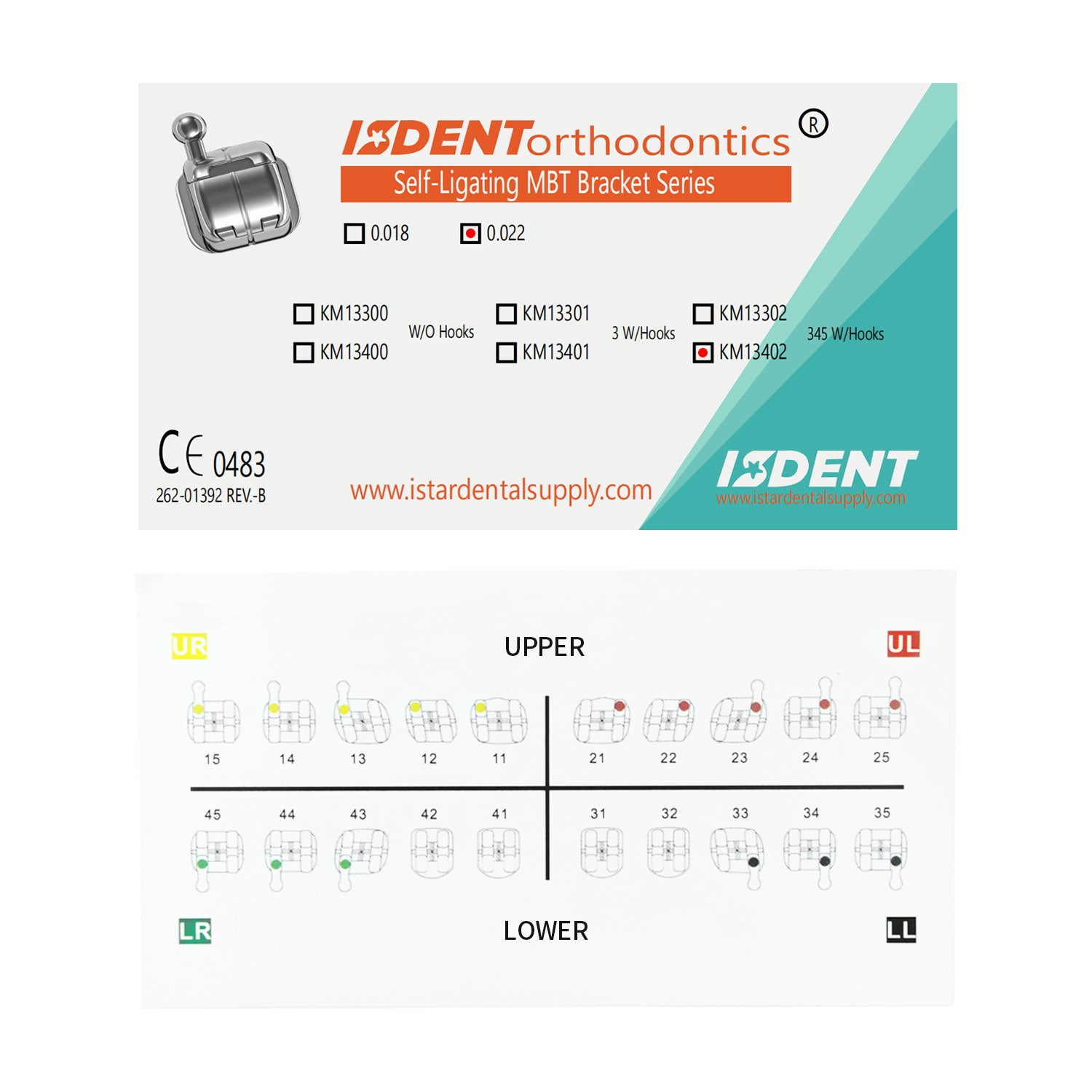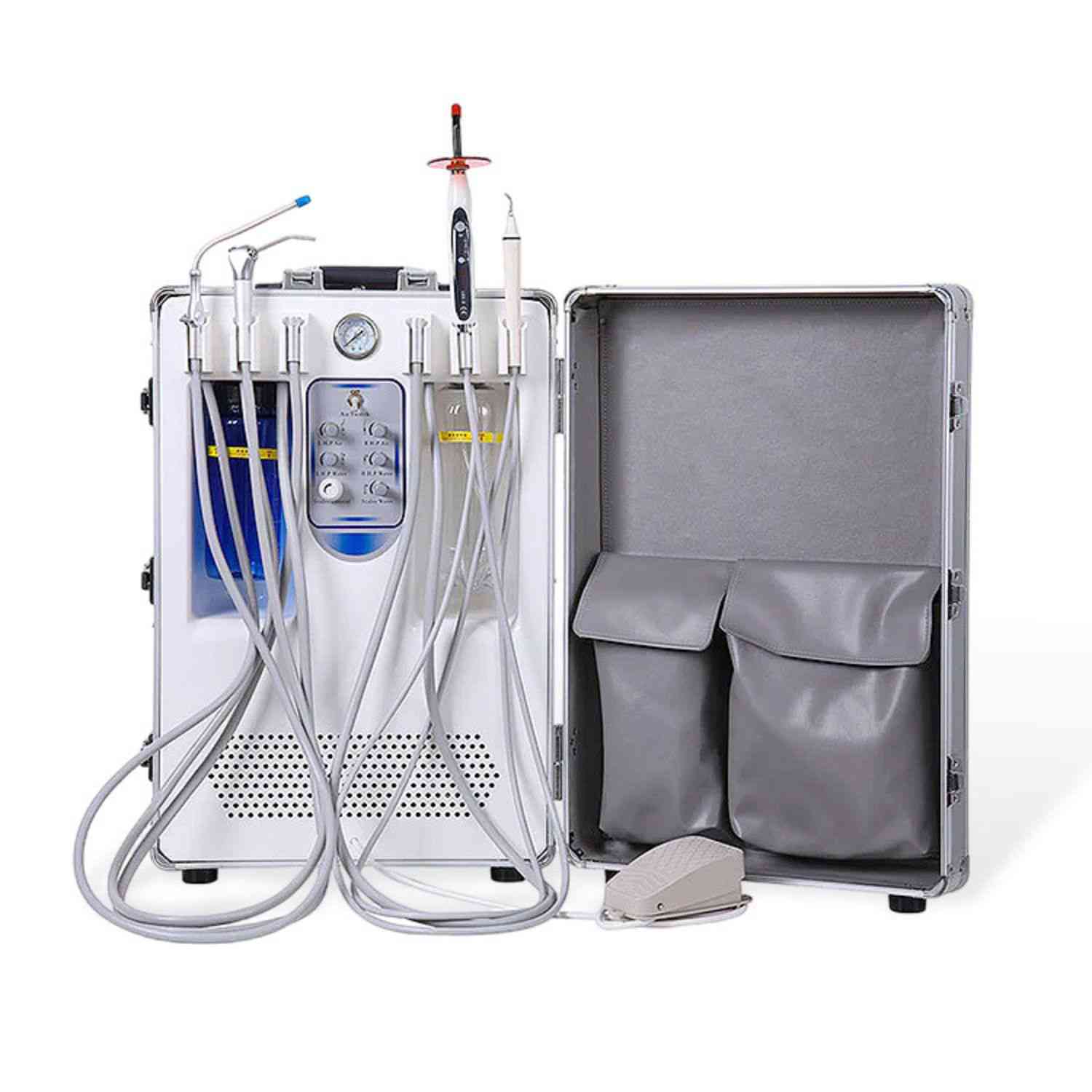In modern dental restoration, dental implants are undoubtedly a revolutionary solution for missing teeth. In this article, we will delve into various aspects of dental implants, from their definition and the surgical process to tips for ensuring their longevity. Whether you're struggling with tooth loss or simply seeking more information, this guide will provide you with valuable insights.
What Are Dental Implants?
Dental implants are artificial tooth roots made of biocompatible materials, typically titanium, that are surgically embedded into the jawbone. They serve as a stable foundation for replacement teeth, known as crowns, which are custom-designed to match your natural teeth.
This process includes placing a specially designed device beneath the gum line and allowing it to heal with the jawbone, forming a secure anchor point. Not only does this restore chewing function, but it also enhances facial aesthetics, giving you a more confident smile.
Imagine enjoying your favorite foods or engaging in conversations with friends without worrying about dental issues. Dental implants can help you regain that sense of freedom, making daily life much easier.
Reasons for Getting Dental Implants.
Restoration of Chewing Function: Missing teeth can significantly impact normal chewing ability. Dental implants effectively restore this function, allowing patients to enjoy a wider variety of foods.
Improvement of Aesthetics: Tooth loss can alter facial contours and diminish self-confidence. Dental implants closely resemble natural teeth, helping to restore a natural smile and improve overall appearance.
Prevention of Neighboring Tooth Shift: When a tooth is missing, adjacent teeth may shift into the empty space, leading to misalignment. Dental implants fill this gap, maintaining proper tooth alignment.
Protection of Jawbone Health: After tooth loss, the jawbone may gradually resorb and deteriorate. Dental implants help stimulate the jawbone through chewing forces, preventing bone loss.
Durability: Compared to traditional dentures or bridges, dental implants have a longer lifespan (typically over 10 years) and tend to maintain their stability and functionality over time.
High Adaptability: Dental implants can be used in various scenarios, including single, multiple, or complete tooth loss, and can be customized to meet individual patient needs.
Enhanced Quality of Life: By addressing the physical and psychological issues related to tooth loss, patients often experience increased confidence in social interactions and an overall improvement in quality of life.
In summary, dental implants not only assist in restoring function and aesthetics but also contribute to oral health and enhanced quality of life.
It is advisable to consult a qualified dental professional to determine the best treatment plan tailored to individual circumstances.

Advantages of Dental Implants
Dental implants offer numerous significant advantages, making them the preferred choice for an increasing number of people.
Natural Appearance and Feel: Dental implants closely resemble natural teeth, both in appearance and sensation, allowing individuals to almost forget that they have ever had tooth loss.
Stability: Because implants fuse tightly with the jawbone, they provide greater stability during chewing compared to traditional dentures, eliminating concerns about slipping or falling out.
Protection of Bone Structure: Dental implants stimulate jawbone growth, preventing bone loss that can result from missing teeth, which is crucial for maintaining facial aesthetics.
Long-Term Use: With regular oral care, dental implants can last for many years, even a lifetime, reducing the hassle of frequent replacements associated with dentures.
Better Oral Health: Compared to traditional dentures, dental implants are easier to clean, promoting better oral hygiene.
Who is Suitable for Dental Implants?
Dental implants are suitable for the following groups of individuals:
Individuals with Missing Teeth: Those who have lost single or multiple teeth due to various reasons such as cavities, trauma, or periodontal disease.
Patients with Healthy Jawbone Development: Sufficient jawbone support is necessary for dental implants; therefore, patients should have good bone density and height.
Age-Appropriate Individuals: Generally, adults (typically 18 years and older) are more suitable for dental implants, as their jawbones have usually reached maturity.
Healthy Individuals: Candidates should be in good overall health without serious systemic diseases (such as diabetes or heart disease) and should ideally not smoke, or if they do, be able to control their smoking habits.
Individuals with Good Oral Hygiene: Those who can maintain good oral hygiene practices and regularly undergo dental check-ups and cleanings are more suitable for dental implants.
Individuals with Strong Needs: People who have an urgent need to restore chewing function, aesthetics, and psychological well-being.

Contraindications for Dental Implants
The following groups of individuals are generally not suitable candidates for dental implants:
Minors: Due to the incomplete development of their jawbones, minors (typically those under 18 years old) are not appropriate candidates for dental implants.
Patients with Severe Systemic Diseases: Individuals with uncontrolled diabetes, heart disease, kidney disease, or certain autoimmune disorders may experience impaired healing processes and reduced success rates for implants.
Individuals with Poor Oral Health: Those suffering from severe periodontal disease or other oral health issues may face compromised stability and success rates for dental implants.
Smokers: Heavy smokers or individuals unable to quit smoking may negatively impact healing and the long-term success of dental implants.
Patients with a History of Radiation Therapy: Individuals who have undergone radiation therapy in the head and neck region may experience decreased healing capacity of oral tissues, potentially affecting the success of dental implants.
Individuals Taking Specific Medications: Long-term use of certain medications (such as anticoagulants or specific corticosteroids) may influence the surgical procedure and the healing process.
Patients with Psychological Disorders or Poor Compliance: Those with unstable mental states or who are unable to adhere to treatment plans provided by healthcare professionals may not be suitable candidates for dental implants.
Before determining suitability for dental implants, it is advisable to consult a qualified dental professional for personalized evaluation and guidance.
Disadvantages of Dental Implants
Despite the numerous advantages of dental implants, there are also some disadvantages and potential risks, primarily including:
Surgical Risks: Dental implant surgery is an invasive procedure that may result in complications such as infection, bleeding, nerve damage, or other adverse effects.
Higher Costs: Compared to traditional dentures, dental implants typically involve higher expenses, which include surgical fees, the cost of the implant itself, and the associated restoration. Additionally, ongoing maintenance and follow-up visits can incur extra costs.
Longer Treatment Time: Even with immediate implant placement, a certain amount of healing and recovery time is required. Patients opting for delayed implants may take several months to complete the entire treatment process.
Bone Quality Requirements: Dental implants necessitate sufficient alveolar bone support. If there is inadequate bone volume, additional procedures such as bone grafting may be required, increasing both the complexity and the cost of treatment.
Impact of Personal Health Conditions: Certain systemic diseases (such as uncontrolled diabetes and heart disease) or habits like smoking can adversely affect the success rate and healing process of dental implants.
Maintenance Requirements: While dental implants are less prone to cavities, they still require good oral hygiene and regular check-ups to prevent periodontal disease and other complications.
Possible Complications: There might be instances where the implant fails to integrate properly with the jawbone, leading to implant failure. In such cases, removal of the implant and re-implantation may be necessary.
Despite these drawbacks, with proper pre-operative evaluation, skilled surgical execution by professionals, and appropriate post-operative care, most patients can achieve satisfactory outcomes with dental implants. When considering dental implants, it is advisable to engage in a detailed discussion with a qualified dentist to fully understand all potential risks and benefits.

The Cost of Dental Implants
Dental implants range from $3,000 to $60,000. The overall cost consists of the implant itself and the dental crown, with various factors influencing the final price. Here are the main components that contribute to the cost:
Crown Material: The expenses associated with all-ceramic crowns and porcelain-fused-to-metal (PFM) crowns differ significantly; all-ceramic crowns tend to be more expensive. All-ceramic crowns are made entirely from ceramic materials without any metal, offering excellent aesthetics and strength. In contrast, PFM crowns consist of a metal base covered with a layer of ceramic material, combining the durability of metal with the aesthetic appeal of ceramics.
Implant Brand: The market offers various brands and types of implants, leading to substantial cost differences. Mid-range brands like Osstem and Bicon provide a good balance between quality and cost, often demonstrating reliable performance. For complex dental cases and patients seeking optimal results, high-end brands such as Straumann and Nobel Biocare are typically recommended. These brands emphasize their long-term benefits, reliability, and aesthetic considerations, making them suitable for demanding cases.
Regional Variations: The cost of dental care varies by region and city, impacting the overall expense of dental implants.
Type of Dental Facility: Different types of dental practices—such as large hospitals, specialized dental clinics, and general dental offices—may have varying fee structures.
Surgical Complexity: If additional procedures are required (such as bone grafting or soft tissue augmentation), the overall cost will increase.
Post-operative Care and Follow-up: Expenses related to post-surgery maintenance, regular check-ups, and any necessary treatments should also be considered.
Pre-operative Examination Costs: Costs for preliminary assessments, including X-rays and CT scans, can range from hundreds to thousands of dollars.
Anesthesia Fees: Depending on the type of procedure, there may be additional costs associated with anesthesia.
Given the numerous influencing factors, it is advisable for patients to consult in detail with the selected dental facility and obtain specific quotes. Additionally, inquire about installment payment options or insurance coverage to alleviate the financial burden.
Adverse Reactions to Dental Implants
While the success rate of dental implants is quite high, there can still be some adverse reactions, including:
Infection Risk: Any surgical procedure carries a certain risk of infection, particularly during the healing phase post-surgery.
Nerve Damage: Although this occurrence is relatively rare, surrounding nerves may be injured during the surgical process, potentially resulting in temporary or permanent pain or numbness.
Failure of Osseointegration: Some patients may experience failure of osseointegration due to insufficient bone quality or other factors, preventing the implant from effectively bonding with the bone.
Peri-implant Inflammation: Inflammation of the soft or hard tissues surrounding the implant, commonly referred to as peri-implantitis, can affect the stability of the implant.
To minimize these risks, it is crucial to follow the advice of a qualified dental professional, maintain good oral hygiene, and attend regular check-ups.

Types of Dental Implant Surgery.
There are several types of dental implant surgery, each designed to address specific clinical situations and patient needs:
Immediate Implantation:
This technique involves placing the implant into the extraction socket immediately after tooth removal. It is suitable for cases where the surrounding bone is in good condition, helping to reduce treatment time and restore chewing function quickly.
Delayed Implantation:
In this method, a waiting period (usually several months) follows tooth extraction to allow for healing and reconstruction of the alveolar bone before proceeding with implantation. This approach is often used in situations involving poor bone quality or when bone grafting is required.
Two-Stage Implant Surgery:
Initially, the implant is placed beneath the bone, and after a period of initial healing, a second surgery is performed to expose the implant and attach the restoration. This method ensures a more stable integration of the implant with the bone.
One-Stage Implant Surgery:
In this single procedure, both the implant and a temporary restoration are placed simultaneously. This approach reduces the number of surgeries needed, but it requires greater surgical expertise and has limited applicability.
Bone Grafting:
When the patient’s jawbone lacks sufficient volume to support an implant, a bone grafting procedure may be necessary to increase bone mass before the implant can be placed.
Sinus Lift:
For implants in the posterior upper jaw, a sinus lift may be required to elevate the sinus floor, increasing the available bone for implantation.
Guided Implant Surgery:
Utilizing digital technology and computer-assisted devices, this technique allows for precise planning of the surgery, enhancing the accuracy and success rate of the implants.
Full Arch Implant:
This solution is designed for patients with complete tooth loss, using a few implants to support a complete denture or fixed bridge, commonly referred to as "full arch dental prosthetics" or "fixed bridges."
Different types of surgical procedures are suited to various clinical scenarios. Selecting the appropriate implant surgery plan requires professional assessment and recommendations from a qualified dentist.

The Process of Dental Implant Surgery
Dental implant surgery typically involves several key steps, and the entire process may take a few months to complete. However, each step is designed to ensure success and comfort. Here is an overview of the general procedure:
Initial Assessment and Planning: Before proceeding with dental implants, the dentist conducts a comprehensive oral examination, including X-rays or 3D imaging, to assess the condition of the jawbone and determine the patient's suitability for the procedure.
Anesthesia: Prior to the start of the surgery, the dentist will administer local anesthesia to minimize discomfort. If the patient is particularly anxious, sedation options may also be available.
Implant Placement: The dentist makes a small incision to expose the jawbone, then drills a small hole into which the implant (artificial tooth root) is placed. During this step, precision in positioning the implant is crucial.
Healing Phase: Over the next several weeks to months, the implant undergoes osseointegration, where it fuses with the jawbone. This process is critical for the long-term success of the dental implant.
Abutment Installation: In the two-stage implant surgery procedures, once the implant is securely integrated with the bone, a second surgery is performed to attach an abutment (connector) to the implant. This abutment will support the final prosthetic tooth.
Fabrication and Installation of Prosthesis: Finally, the dentist customizes the prosthetic tooth based on impressions of the patient's mouth. This step is essential to ensure that the prosthesis fits seamlessly with the surrounding teeth for a natural appearance and function.
Follow-up Care: After the surgery is completed, regular follow-up visits and cleaning are essential. The dentist will monitor the stability of the implant and the health of the surrounding tissues.
Although the entire surgical process may seem complex, each step is meticulously planned to ensure that you achieve a healthy, lasting smile.
How long does dental implants last?
Dental implants can last for several decades, with most lasting around 20 years. According to a survey by Buser in 2017, the survival rate of implants after 5 years reached 95%, while the survival rate after 9 to 10 years is approximately 94.6%.
The lifespan of dental implants varies from person to person and is influenced by multiple factors, including individual oral hygiene habits, overall health, and the frequency of regular dental check-ups. Generally speaking, proper maintenance can allow dental implants to last for many years, or even a lifetime. Here are some factors that affect the longevity of dental implants:
Oral Hygiene: Good oral hygiene practices, such as regular brushing and flossing, can effectively prevent periodontal disease and infections, thereby extending the lifespan of dental implants.
Regular Check-ups: Visiting the dentist regularly for check-ups and cleanings allows for the timely identification of potential issues, enabling proactive measures to avoid serious consequences.
Lifestyle Choices: Smoking, excessive alcohol consumption, and an unhealthy diet can negatively impact the longevity of dental implants. Maintaining healthy lifestyle habits helps preserve the health of the surrounding periodontal tissues.
Overall Health: Certain medical conditions, such as diabetes and other chronic diseases, can affect the healing and stability of dental implants. Therefore, it is crucial to inform your dentist of any relevant health issues before undergoing the procedure.
By adhering to these guidelines and maintaining a proactive approach to dental care, patients can significantly enhance the durability of their dental implants.

Summary
In conclusion, if you maintain good oral health, dental implants can not only provide you with an improved chewing experience but also accompany you for many years to come. Whether you are troubled by missing teeth or curious about the details of the implant procedure, this guide aims to offer you valuable information.
Dental implants are not just a technological advancement; they are a way to regain confidence and a beautiful smile. Instead of worrying about the future, take the initiative to educate yourself and consult with a professional dentist to make informed decisions. Remember, oral health is not just about our teeth; it is closely linked to our overall well-being. We hope this guide helps you take the first step towards restoring your oral health!
FAQ
Dental implants vs. Dentures
- Dental Implants
Structure: Titanium post surgically placed in the jawbone, topped with a crown.
Aesthetics: Looks and functions like natural teeth; very stable and secure.
Longevity: Can last 10 to 30 years or more with proper care.
Maintenance: Requires regular brushing, flossing, and dental visits.
Health Benefits: Prevents bone loss and maintains facial structure.
- Dentures
Structure: Removable prosthetic devices made of acrylic resin (complete or partial).
Aesthetics: Can look realistic but may feel less secure; potential for shifting.
Longevity: Typically lasts 5 to 10 years before needing replacement or adjustment.
Maintenance: Requires daily cleaning and must be removed at night.
Health Concerns: Does not prevent bone loss, which can lead to changes in facial appearance over time.
- Conclusion
Dental implants offer a long-term, stable solution that closely mimics natural teeth, while dentures are a cost-effective and non-invasive option for replacing missing teeth but may require more maintenance and adjustments over time.

When is it too late to get dental implants?
It is generally not "too late" to get dental implants, but there are important considerations:
Bone Density: Adequate bone density is essential for implant stability. If significant bone loss has occurred, a bone graft may be needed before placement.
Age: While age itself isn't a barrier, older individuals may have more health concerns that could affect eligibility. A thorough medical evaluation is necessary.
Gum Health: Healthy gums are crucial for the success of implants. Active gum disease must be treated prior
How painful is getting a dental implant?
Getting a dental implant is generally not very painful due to the use of local anesthesia during the procedure. Patients may experience some discomfort, swelling, or minor pain afterward as the anesthesia wears off, but this can usually be managed with over-the-counter pain relievers.
Most patients report that the discomfort is comparable to having a tooth extracted. Following the procedure, any significant pain or prolonged discomfort should be discussed with the dentist. Overall, the process is well-tolerated by most individuals.







